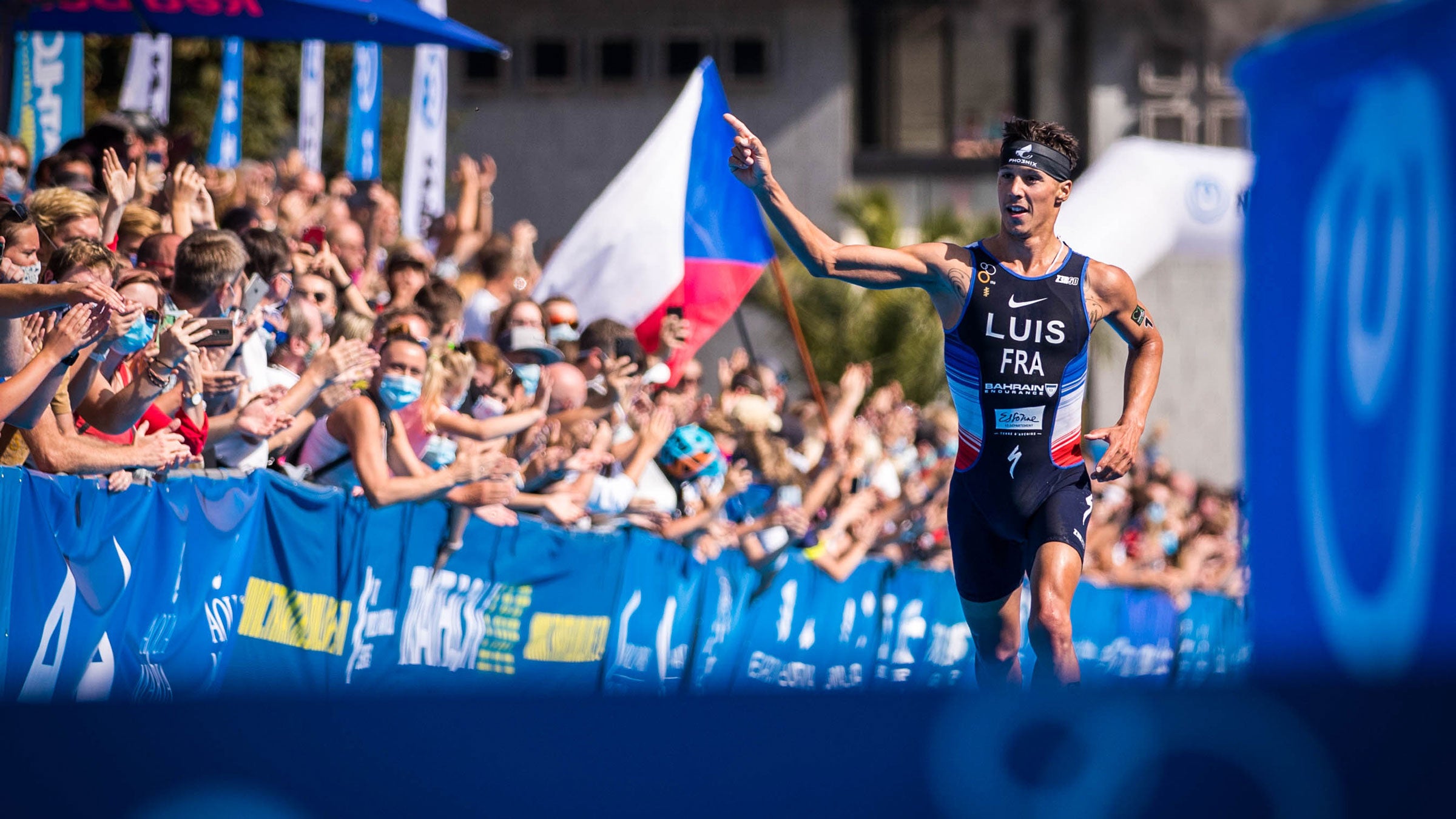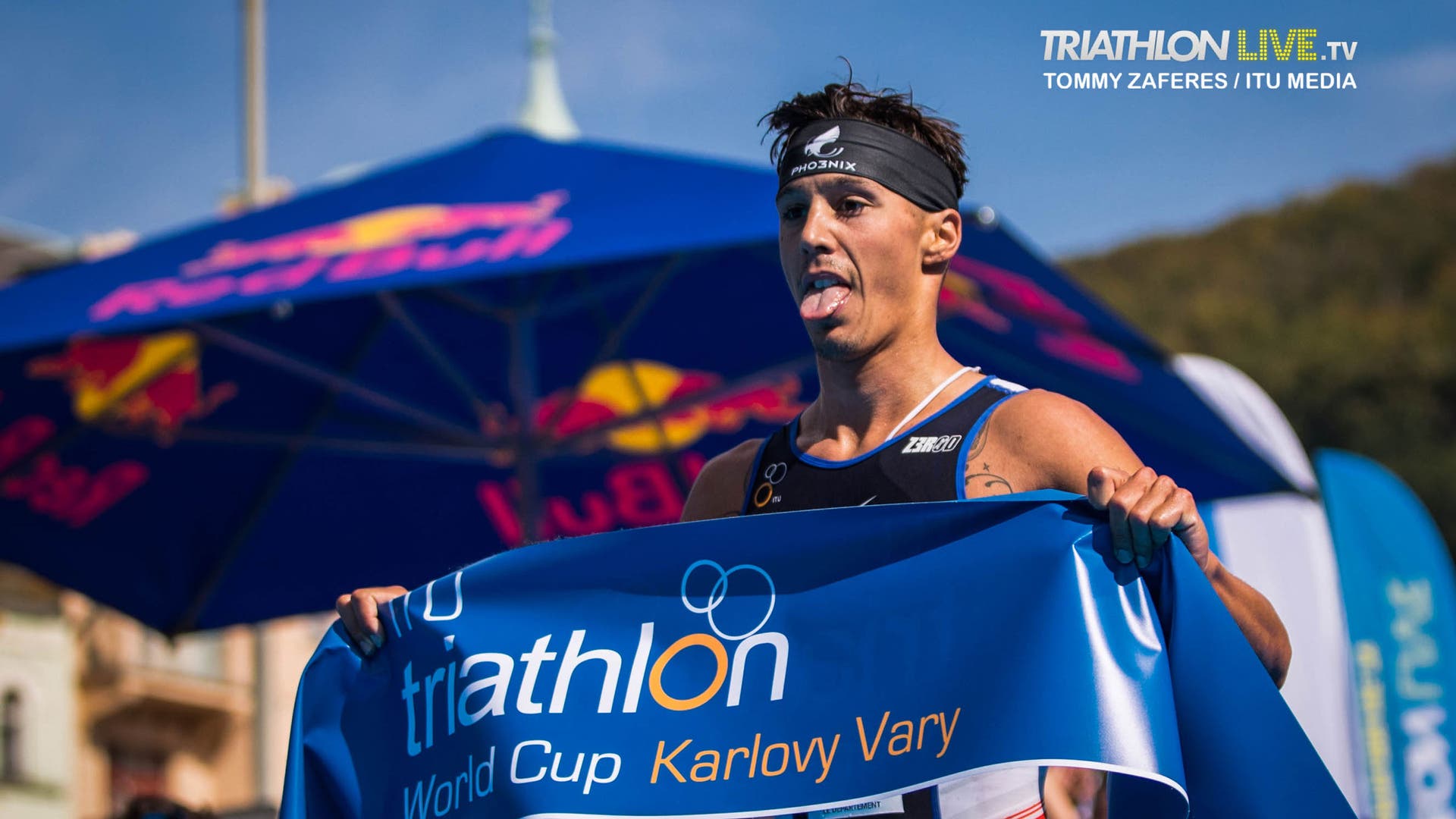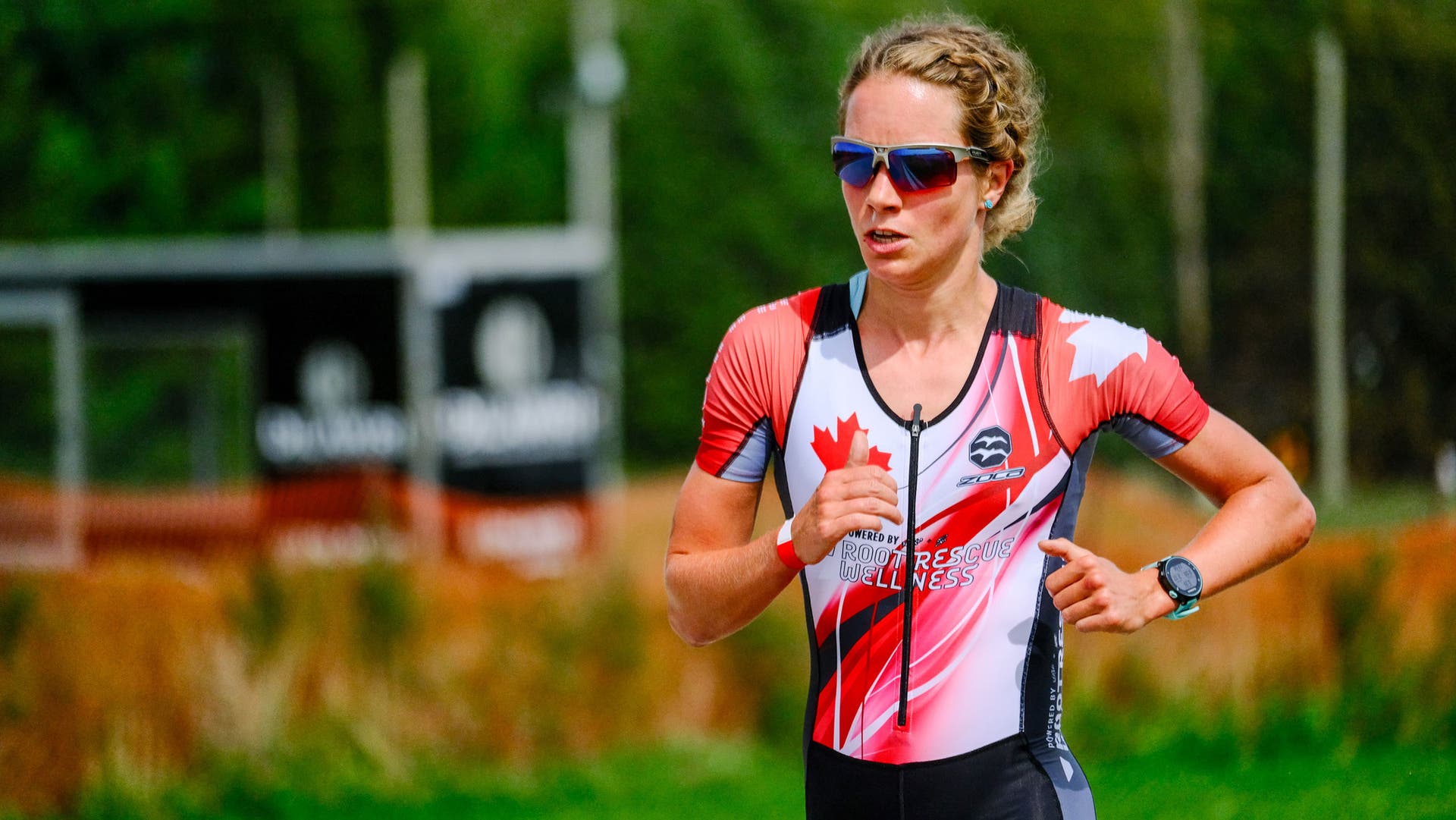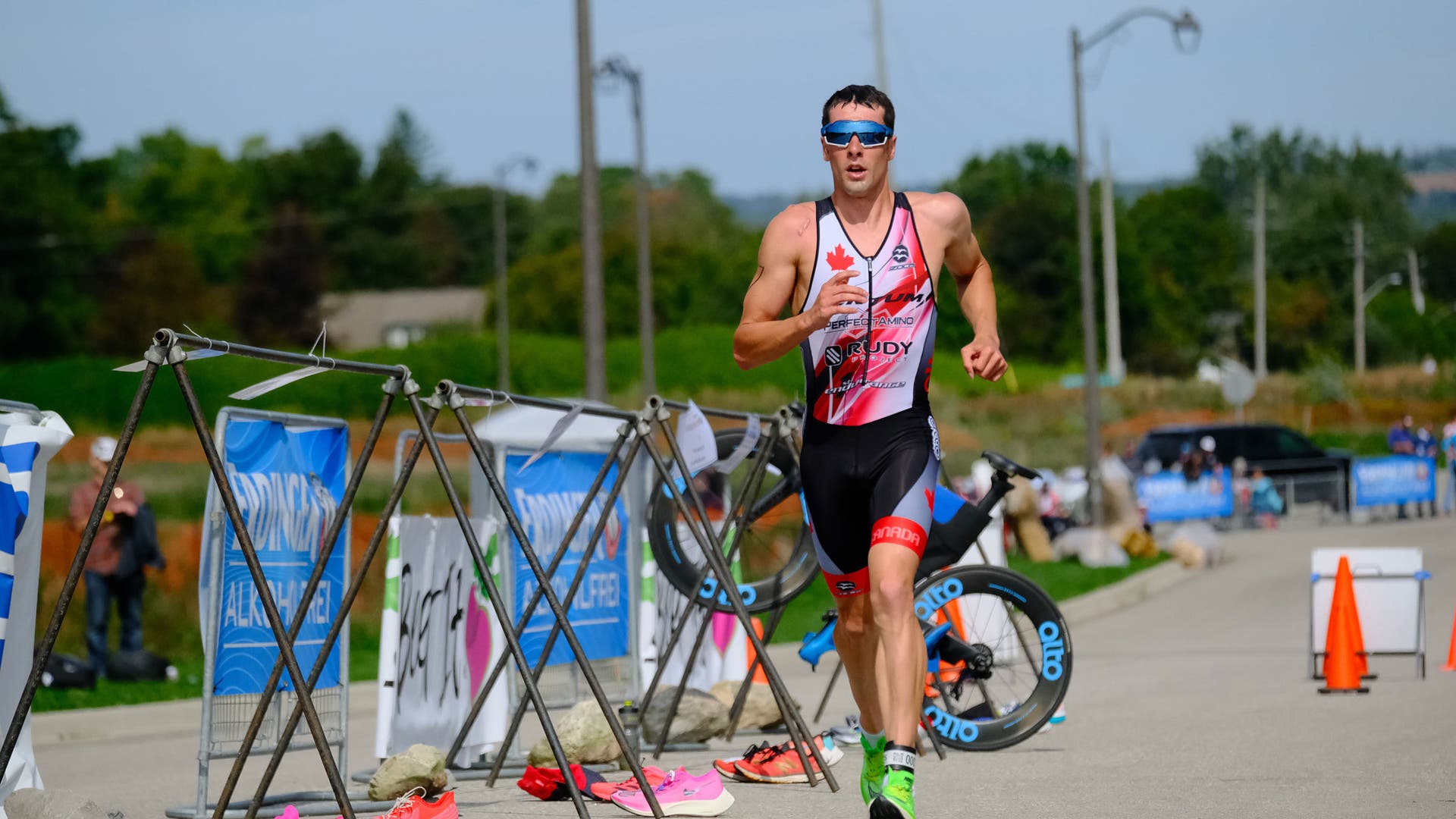Last Weekend Now: Racing On Three Continents

(Photo: Tommy Zaferes/Triathlon.org)
Last Weekend Now is your Monday morning rundown of what’s happening in pro triathlon, brought to you with commentary by Brad Culp. (Ed note: So yell at him if you don’t like the comments.)
I owe the triathlon community an apology. Sometime back in March, and then again in April, I sent out a series of tweets that basically said, ‘There’s no chance of any triathlons taking place in 2020, so get over it.’ I figured the PTO Championship in Daytona in December was the only race that had a possibility of happening, because it’s in Florida, which has always had a ‘let’s just see what happens’ approach to the pandemic.
I was wrong. We’re going to have a few dozen triathlons around the world this fall. Some will be pro-only affairs, but some, like this past weekend’s Ironman 70.3 Sunshine Coast in Australia and next weekend’s Big Lake Brawl in northern Utah, will give amateur athletes a chance to suit up. But let’s start with a pro-only event and another apology.
ITU Karlovy Vary World Cup
After last week’s ITU World Championship in Hamburg, I wrote that Portugal’s Vasco Vilaça was definitely not the second-best triathlete in the world, even though he had just finished second at a “world championship.” I stand by that statement, but I didn’t mean to sell the kid short. He is ridiculously talented and looks like he’ll be a force to be reckoned with for a decade to come. My apologies to Vilaça and his crew (who let me hear it on social media). Your boy still isn’t the second-best triathlete on earth, and he’s probably four years away from being a true medal contender, but he’s the most talented 21-year-old I’ve seen since Alistair Brownlee.
Vilaça backed up his second-place showing in Hamburg with another runner-up finish to Vincent Luis at the Karlovy Vary World Cup in Czech Republic this weekend—this time doing so over the Olympic distance. Luis showed once again why we probably won’t be treated to a sprint finish at next year’s Tokyo Olympics. Of the guys who are sure to be at the front of the race at the start of the run, Luis is the one with an extra gear and, no matter the distance, he always seems to kick it in with 2K to go.

If there’s any way to spoil Luis’ party in Tokyo next summer, it’ll come from the group of guys who don’t swim very well and spend all day chasing him down. I have no idea how to pronounce Jelle Geens (I hope it rhymes with “jelly beans”), but the 27-year-old Belgian can really fly on the run. He ran 42 seconds faster than Luis on Sunday (after swimming 70 seconds slower) to claim the final spot on the podium. The only person in the same zip code as him on the run was South African Richard Murray, who ran his way up to fourth after running 22 seconds better than Luis.
The men’s Olympic triathlon race will be a lot more interesting if there are some guys in that second group who can bridge the gap on the bike. Some federations might choose to use bike domestiques, especially countries like the U.S., Spain, and South Africa, who don’t have an athlete who can swim at the front. If there’s a third spot for the U.S. men’s team, there’s a case to be made for Ben Kanute then, who has the bike power to pull the slower swimmers up to the front. But Kevin McDowell keeps trending in the right direction, finishing 14th on Sunday, which was the only notable finish among the U.S. men. Shoutout to my hometown of Geneva, Illinois, for producing two of the best triathletes in the country and making USAT’s decision next summer even more complicated.
What’s not complicated is that Flora Duffy is the strongest woman on the ITU circuit when there’s actually a challenging course, which is rare these days. The course in Karlovy Vary was one of hilliest and most technical the ITU has raced on since the Rio Olympics, and Duffy showed that she’s back to the form she had four years ago when she won the ITU World Championship, ITU Cross World Championship, and Xterra World Championship in the same year.

Unfortunately for Duffy, the course in Tokyo will be as flat as they come, with the only technical element being a few dozen U-turns on the bike. That might tip the scales to Britain’s Georgia Taylor-Brown, who seems to excel when she can just take off and fly on the run and doesn’t have to worry about powering up and down hills. Taylor-Brown backed up her ITU [Most of the] World Championship win with a runner-up finish in Czech Republic, while Dutchwoman Maya Kingma posted one of the best results of her career to round out the podium.
One notable, eye-popping result was Britain’s Jessica Learmouth with a 17:53 1,500-meter swim, which would’ve had her out of the water 14th in the men’s race and at the tail-end of the lead pack. Perhaps the U.S. men’s team can hire her as a swim coach before Tokyo so they’ll actually have a shot at a medal.
Ironman 70.3 Sunshine Coast
Thanks to handling the pandemic like adults, Australia gets to have nice things like Ironman events. 70.3 Sunshine Coast, in Mooloolaba, was the first Ironman-branded race since March to take place outside of Europe, and it’s a sign of good things to come.
The pro race brought together a mix of Ironman veterans and ITU stars eager to actually race in 2020. (Travel restrictions have prevented Australian and Kiwi athletes from racing in Europe). In the women’s race, those well versed in longer distances came out on top, with New Zealand’s Amelia Watkinson riding away with the race to beat Aussie Sarah Crowley by more than three minutes. Tokyo medal contender Ashleigh Gentle finished third in only her second 70.3 race, and once again showed that she has a very bright future in non-draft racing.
Another Aussie who will be wise to move up to 70.3 after Tokyo—in order to actually make some money—is Aaron Royle, who clocked a 1:12:38 half marathon to win his first 70.3. He even managed to keep pace with countryman Josh Amberger on both the swim and bike, something almost no one on the 70.3 scene can do. Amberger struggled on the run and finished third, with fellow Aussie Max Nuemann joining them on the podium in second. Royle looks like a lock for the Aussie Olympic Team because of strength in the relay, and it looks like he’ll also have a very lucrative 70.3 career post-Tokyo.
Lululemon Canadian Pro Championships
“You get $20,000! And you get $20,000! And you get $20,000!”
If you’re putting on a professional triathlon race right now and can’t get $20,000 from the PTO for a pro prize purse, you’re clearly doing something wrong. (Unless you’re Ironman, who has refused to supplement its prize purses with PTO handouts.)
The latest race to benefit was the Canadian Pro Championship, organized this weekend just outside of Toronto. The format neutralized the race after each discipline to keep athletes socially distant. So after the 1.5K swim, athletes were stopped and then set off on the 40K bike at intervals based on their swim. Likewise, after the bike, the race was neutralized and athletes were then sent off at the appropriate time gaps.
This unique format played into the hands of former elite runner Tamara Jewett, who won her country’s national triathlon title in only her second season as a triathlete. Jewett lost three minutes on the swim to 2016 Olympian Amelie Kretz, before making up a minute on the bike and more than two minutes on the run to take the win by 20 seconds. Ironman veteran Rachel McBride proved the 40-somethings can still keep pace with the kids over shorter distances, finishing third, just 38 seconds behind Kretz. (It helps when you can ride a TT bike five minutes faster than the kids.)

The men’s race also brought together a mix of long-and short-course Canadians eager to cash at least one paycheck this season. 70.3 specialist Jackson Laundry came out on top of Ironman veteran Brent McMahon, thanks in large part to Laundry’s 55:51 40K bike split. Olympic hopeful Jeremy Briand lost more than four minutes to Laundry on the bike, but came back with the day’s fastest run (32:34) to finish third.

Next week the PTO will sponsor its first race on U.S. soil at the Bear Lake Brawl in northern Utah, which will also have a $20,000 prize purse that will pay 10 deep. It’s shaping up to have a solid pro field of West Coast pros eager to get some of this PTO money while they can.